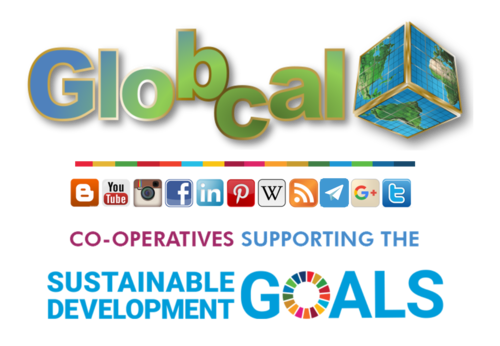Hindou Oumaro Ibrahim, UN SDG Advocate
One of 17 SDG Advocates
Are you passionate about animals in your country? Do you feel peace of mind is important for a peaceful world? Do you think clean water for all is one of the world’s most important issues? Do you believe climate action is urgently needed? Great! The SDGs – the United Nations Sustainable Development Goals – surely is something for you.To raise ambition for the implementation of the SDGs worldwide, the United Nations has appointed 17 SDG advocates. They are all united in their dedication to a peaceful world, a healthy planet and prosperity for all. It is easy to think that the SDGs is someone else’s responsibility, but the fact is: the SDGs are responsibilities for each and everyone of us. As global citizens, it is our duty to care for our planet and our one and only human family. To really leave no one behind, we all need to get involved and start to take action.
In this article, we chose to focus on Hindou Oumaro Ibrahim, who is a strong advocate for indigenous peoples, the environment and climate action representing the Mbororo people in the Sahel region.
 |
| Hindou Oumaro Ibrahim is Co-Chair of the International Indigenous Peoples Forum on Climate Change. Photo: World Economic Forum |
“For centuries, indigenous peoples have protected the environment, which provides them food, medicine and so much more. Now it’s time to protect and benefit from their unique traditional knowledge to bring concrete and natural solutions to implement sustainable development goals and fight climate change.”
Hindou Oumaro Ibrahim
Hindou Oumaro Ibrahim was born in Chad in north-central Africa in 1984. Today Chad is bordered by Libya to the north, Sudan to the east, the Central African Republic to the south, Cameroon and Nigeria to the south-west, and Niger to the west.The Mbororo people, who Hindou Oumaro Ibrahim represents, are a small subgroup of the Fulani ethnic group. The Mbororo people, also called the Wodabee or Bororo, are traditionally nomadic cattle-herders and traders in the Sahel region, a region situated to the immediate south of the Sahara Desert stretching east-west across the African continent.
The Association of Indigenous Women and Peoples of Chad
When Hindou Oumaro Ibrahim realized the discrimination against indigenous peoples, and especially indigenous women, for example the exclusion from educational opportunities, she founded the Association for Indigenous Women and Peoples of Chad (AFPAT), promoting the rights of girls and women in the Mbororo community. By doing so, she also promoted the girls and women in the Mbororo community as strong leaders in environmental protection.International Negotiations
SDG 13 – Climate Action
The Sustainable Development Goal 13 is “to take urgent action to combat climate change and its impacts”. According to UNDESA, United Nations Department of Economic and Social Affairs, 2019 was the second warmest year on record and global temperatures are projected to rise by up to 3,2 degrees Celsius by 2100.Only 85 countries have national disaster risk reduction strategies aligned to the Sendai Framework, which is the roadmap for how we make our communities safer and more resilient to disasters developed by UNDRR, the UN Office for Disaster Risk Reduction.
The climate of the Sahel region, the home of the Mbororo people, is arid and hot with strong seasonal variations in rainfall and temperature. The region is vulnerable to climate change. The Sahel region will be at risk of drought which can reduce water supply for both animals and people. This is one example of how global warming may affect the people living in the Sahel region, especially the vulnerable Mbororo people.
 |
| Sustainable Development Goal 13: Climate Action |
UN SDG Advocates for 2019–2020
The United Nations has appointed the following 17 SDG advocates for 2019–2020: | ||
|
- Nana Addo Dankwa Akufo-Addo, President of Ghana
- Erna Solberg, Prime Minister of Norway
- HM Queen Mathilde, Belgium
- HH Sheikha Moza bint Nasser, Qatar
- HH Muhammadu Sanusi II Emir of Kano, Nigeria
- Richard Curtis, United States
- Hindou Oumaro Ibrahim, Chad
- Jack Ma, China
- Graça Machel, Mozambique
- Dia Mirza, India
- Dr. Alaa Murabit, Canada
- Nadia Murad, Iraq
- Edward (Eddie) Ndopu, Namibia
- Paul Poman, the Netherlands
- Jeffrey Sachs, United States
- Marta Vieira da Silva, Brazil
- Forest Whitaker, United States
Agenda 2030
The Agenda 2030 for Sustainable Development with the 17 Sustainable Development Goals – SDGs – were adopted by all United Nations Member States in 2015. |
| Agenda 2030. 17 Sustainable Development Goals - Illustration: United Nations |
- No Poverty
- Zero Hunger
- Good Health & Well-being
- Quality Education
- Gender Equality
- Clean Water & Sanitation
- Affordable & Clean Energy
- Decent Work & Economic Growth
- Industry, Innovation & Infrastructure
- Reduced Inequalities
- Sustainable Cities & Communities
- Responsible Consumption & Production
- Climate Action
- Life below Water
- Life on Land
- Peace, Justice & Strong Institutions
- Partnerships for the Goals






